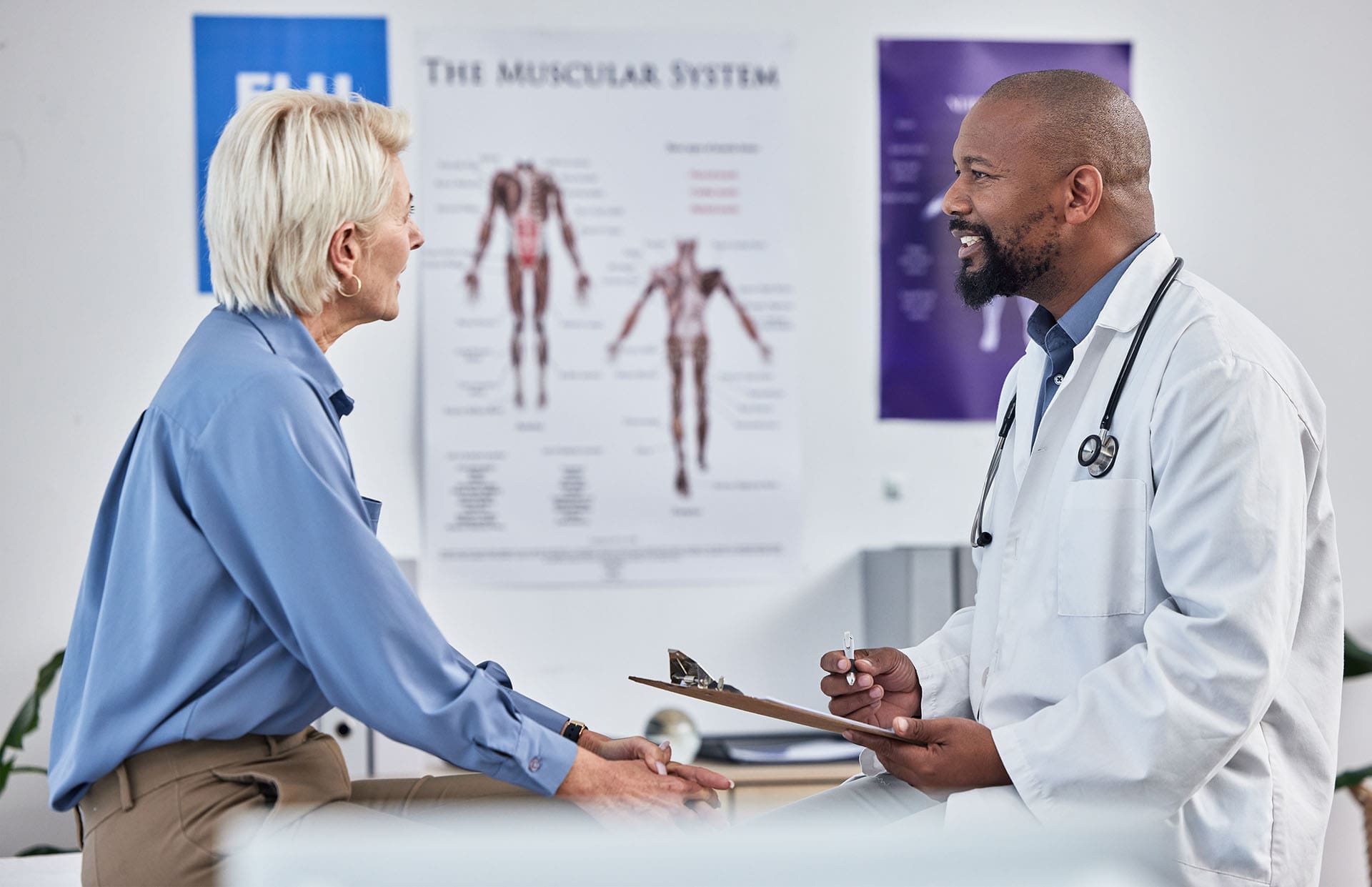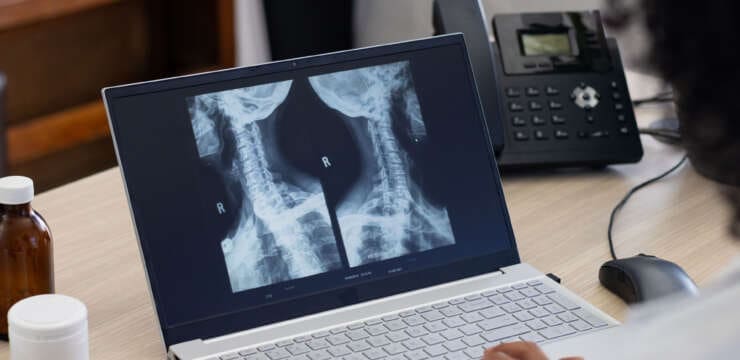
Table of Contents
The Gut Microbiome’s Role in Musculoskeletal Recovery: A Health Coach’s Guide

Introduction: Why Gut Health Matters in Recovery Coaching
For many people, “recovery” means resting an injured muscle, icing a swollen joint, or doing rehab exercises. While these strategies are important, they often overlook one of the body’s most powerful recovery allies: the gut microbiome. This diverse ecosystem of bacteria, viruses, fungi, and other microorganisms lives inside the digestive tract, and it plays a central role in nutrient absorption, inflammation control, hormone regulation, and even pain modulation.
For health coaches, understanding and addressing the gut–musculoskeletal connection offers a valuable way to help clients heal more efficiently, prevent long-term issues, and maintain peak function. Whether the client is recovering from a sports injury, a fall, or post-surgery rehabilitation, gut health can determine how quickly and effectively the musculoskeletal system recovers.
Dr. Alexander Jimenez, DC, APRN, FNP-BC — a dual-licensed chiropractor and nurse practitioner — has seen this connection repeatedly in his clinical practice. Clients who optimize their gut health during injury recovery often experience reduced pain, faster healing, and improved long-term resilience.
(How gut microbes help mend damaged muscles, 2024)
Understanding the Gut Microbiome
The gut microbiome is made up of trillions of microorganisms that collectively weigh about 2–3 pounds. These microbes influence far more than digestion:
- They extract nutrients from food
- They create bioactive compounds like short-chain fatty acids (SCFAs)
- They train and regulate the immune system
- They send signals to the brain via the gut–brain axis
- They influence hormone balance and inflammation levels
When balanced, this ecosystem supports healing and daily function. When imbalanced — a state called dysbiosis — it can hinder nutrient absorption, drive chronic inflammation, and slow tissue repair.
(Microbiome in motion: revolutionizing musculoskeletal recovery, 2025)
Nutrient Absorption: Fuel for Muscle and Bone Repair
One of the most direct ways the gut microbiome affects musculoskeletal health is by controlling nutrient absorption. Beneficial gut bacteria help break down food and supplements into forms the body can use, producing SCFAs like butyrate, acetate, and propionate that strengthen the intestinal barrier.
For muscle and bone recovery, these nutrients are essential:
- Calcium & Phosphorus: Bone mineralization and muscle contraction
- Magnesium: Muscle relaxation, nerve signaling, and energy production
- Vitamin D: Regulates calcium absorption and supports immune function
- Vitamin K: Works with vitamin D to strengthen bones and prevent fractures
- Protein & Amino Acids: Muscle repair and connective tissue recovery
When dysbiosis impairs absorption, even the best diet can fail to meet recovery needs. Coaches can help clients by encouraging microbiome-supportive foods like leafy greens, legumes, fermented vegetables, and prebiotic fibers.
(Calcium: a pivotal mineral for bone growth, 2024)
Inflammation Control: Balancing the Healing Response
Inflammation is essential after injury — it brings immune cells to the damaged area and triggers repair. But too much inflammation for too long can damage tissues, delay recovery, and increase pain.
A balanced gut microbiome helps regulate inflammation by producing SCFAs that influence immune cell activity. In contrast, dysbiosis often leads to an overactive immune response, resulting in systemic low-grade inflammation that slows healing.
For health coaches, this means guiding clients toward anti-inflammatory eating patterns that support gut health:
- High-fiber plant foods to feed beneficial bacteria
- Omega-3-rich foods like fatty fish, chia seeds, and flaxseeds
- Fermented foods to restore microbial diversity
- Limiting ultra-processed, high-sugar foods that promote inflammatory microbes
Dr. Jimenez often combines these dietary shifts with targeted rehab exercises and chiropractic care to reduce swelling and stiffness while promoting mobility.
(The gut’s role in chronic pain management, 2024)
Hormone Regulation and Recovery
The gut microbiome also influences the endocrine system. Certain bacteria produce metabolites that help regulate:
- Insulin-like growth factor 1 (IGF-1): Stimulates muscle protein synthesis
- Testosterone & Estrogen: Maintain muscle mass and bone density
- Cortisol: Manages stress response, but can damage tissue if chronically high
When gut health is compromised, hormonal balance often suffers — reducing the body’s ability to repair damaged tissues and adapt to training loads. Health coaches can encourage habits that promote hormonal balance through microbiome health: stress-reduction practices, balanced macronutrients, and regular physical activity.
(Certain bacteria in the gut can synthesize key metabolites, 2024)
Muscle Growth and Endurance
Emerging studies indicate that a diverse microbiome can improve muscle function by:
- Providing extra fuel for muscle cells through SCFAs
- Enhancing mitochondrial efficiency for energy production
- Reducing oxidative stress that damages muscle tissue
For recovering clients, this means greater endurance in rehab exercises and faster strength gains post-injury. Coaches can align nutrition plans with progressive training to support both the microbiome and muscle performance.
(The gut microbiota interacts with muscle growth and development, 2022)
Bone Health and Microbiome Support
Healthy gut bacteria improve calcium and magnesium absorption and stimulate osteoblasts — cells that build bone tissue. SCFAs can also reduce osteoclast activity, slowing bone breakdown.
For clients recovering from fractures or at risk for bone density loss, health coaches can emphasize gut-friendly foods that enhance mineral absorption and bone metabolism.
(Gut microbiome and bone mineralization, 2024)
The Gut–Brain–Muscle Axis in Pain and Coordination
The gut communicates with the brain through neural, immune, and hormonal pathways — collectively called the gut–brain axis. This link influences how pain is perceived, how inflammation is regulated, and how muscles coordinate movement.
For clients with chronic musculoskeletal pain, improving gut health can modulate pain sensitivity and enhance neuromuscular control, making physical rehabilitation more effective.
(An unexpected connection between gut microbiome and musculoskeletal pain, 2024)
Dysbiosis: A Hidden Recovery Barrier
Dysbiosis can be caused by antibiotics, chronic stress, poor diet, overtraining, or illness. Its effects on injury recovery include:
- Increased inflammation
- Reduced nutrient absorption
- Hormonal disruption
- Weakened immune defense against infection
Health coaches can help detect potential dysbiosis through symptom tracking and collaborate with healthcare providers for testing and treatment plans.
(Dysbiosis and musculoskeletal health, 2024)
Coaching Strategies to Support Gut–Musculoskeletal Health
Dietary Guidance
- Increase the variety of plant foods (different fibers feed different microbes)
- Include fermented foods daily
- Add prebiotic-rich vegetables like onions, garlic, asparagus, and leeks
Lifestyle Coaching
- Encourage consistent sleep for hormone regulation
- Reduce chronic stress through breathing techniques and mindfulness
- Promote balanced training loads to avoid overtraining
Collaboration with Clinicians
- Refer clients with persistent GI symptoms or slow recovery for medical evaluation
- Support personalized supplement plans recommended by licensed providers
Case Example: Integrating Gut Health in Recovery
A middle-aged recreational runner with a partial Achilles tendon tear had persistent swelling and slow healing despite standard rehab. After reviewing her diet, Dr. Jimenez and a health coach discovered low fiber intake and frequent use of anti-inflammatory medications that may have disrupted her microbiome.
By adding probiotic-rich foods, prebiotic vegetables, and reducing processed snacks, her gut function improved within weeks. Swelling decreased, pain reduced, and she regained full training capacity ahead of schedule.
Long-Term Benefits for Clients
Addressing gut health during recovery doesn’t just speed up healing — it builds resilience. Clients who maintain a healthy microbiome often experience the following benefits:
- Lower injury recurrence rates
- Improved training adaptation
- Better overall energy and mood
- Enhanced long-term musculoskeletal health
Conclusion
The gut microbiome is a powerful but often overlooked factor in musculoskeletal recovery. For health coaches, integrating gut-supportive strategies into client programs can enhance nutrient absorption, control inflammation, balance hormones, and improve pain modulation. This holistic approach empowers clients to recover faster, reduce chronic issues, and sustain higher levels of physical function.
References
- Harvard Medical School. (2024, January 4). How gut microbes help mend damaged muscles. Harvard Medical School News.
- National Center for Biotechnology Information. (2024). Calcium: a pivotal mineral for bone growth. PMC.
- National Center for Biotechnology Information. (2025). Microbiome in motion: revolutionizing musculoskeletal recovery. Journal of the International Society of Physical and Rehabilitation Medicine.
- Digbi Health. (2024). The gut’s role in chronic pain management.
- IGI-Global. (2024). Certain bacteria in the gut can synthesize key metabolites.
- National Center for Biotechnology Information. (2022). The gut microbiota interacts with muscle growth and development. PMC.
- National Center for Biotechnology Information. (2024). Gut microbiome and bone mineralization. PMC.
- International Academy of Orthopedic Medicine – US. (2024). An unexpected connection between gut microbiome and musculoskeletal pain.
- National Center for Biotechnology Information. (2024). Dysbiosis and musculoskeletal health. PMC.
Disclaimers
Professional Scope of Practice *
The information herein on "Musculoskeletal Healing Gut Health for Recovery" is not intended to replace a one-on-one relationship with a qualified health care professional or licensed physician and is not medical advice. We encourage you to make healthcare decisions based on your research and partnership with a qualified healthcare professional.
Blog Information & Scope Discussions
Welcome to El Paso's wellness blog, where Dr. Alex Jimenez, DC, FNP-C, a board-certified Family Practice Nurse Practitioner (FNP-C) and Chiropractor (DC), presents insights on how our team is dedicated to holistic healing and personalized care. Our practice aligns with evidence-based treatment protocols inspired by integrative medicine principles, similar to those found on dralexjimenez.com, focusing on restoring health naturally for patients of all ages.
Our areas of chiropractic practice include Wellness & Nutrition, Chronic Pain, Personal Injury, Auto Accident Care, Work Injuries, Back Injury, Low Back Pain, Neck Pain, Migraine Headaches, Sports Injuries, Severe Sciatica, Scoliosis, Complex Herniated Discs, Fibromyalgia, Chronic Pain, Complex Injuries, Stress Management, Functional Medicine Treatments, and in-scope care protocols.
Our information scope is limited to chiropractic, musculoskeletal, physical medicine, wellness, contributing etiological viscerosomatic disturbances within clinical presentations, associated somato-visceral reflex clinical dynamics, subluxation complexes, sensitive health issues, and functional medicine articles, topics, and discussions.
We provide and present clinical collaboration with specialists from various disciplines. Each specialist is governed by their professional scope of practice and their jurisdiction of licensure. We use functional health & wellness protocols to treat and support care for the injuries or disorders of the musculoskeletal system.
Our videos, posts, topics, subjects, and insights cover clinical matters, issues, and topics that relate to and directly or indirectly support our clinical scope of practice.*
Our office has reasonably attempted to provide supportive citations and has identified the relevant research studies or studies supporting our posts. We provide copies of supporting research studies available to regulatory boards and the public upon request.
We understand that we cover matters that require an additional explanation of how they may assist in a particular care plan or treatment protocol; therefore, to discuss the subject matter above further, please feel free to ask Dr. Alex Jimenez, DC, APRN, FNP-BC, or contact us at 915-850-0900.
We are here to help you and your family.
Blessings
Dr. Alex Jimenez DC, MSACP, APRN, FNP-BC*, CCST, IFMCP, CFMP, ATN
email: coach@elpasofunctionalmedicine.com
Licensed as a Doctor of Chiropractic (DC) in Texas & New Mexico*
Texas DC License # TX5807
New Mexico DC License # NM-DC2182
Licensed as a Registered Nurse (RN*) in Texas & Multistate
Texas RN License # 1191402
ANCC FNP-BC: Board Certified Nurse Practitioner*
Compact Status: Multi-State License: Authorized to Practice in 40 States*
Graduate with Honors: ICHS: MSN-FNP (Family Nurse Practitioner Program)
Degree Granted. Master's in Family Practice MSN Diploma (Cum Laude)
Dr. Alex Jimenez, DC, APRN, FNP-BC*, CFMP, IFMCP, ATN, CCST
My Digital Business Card





